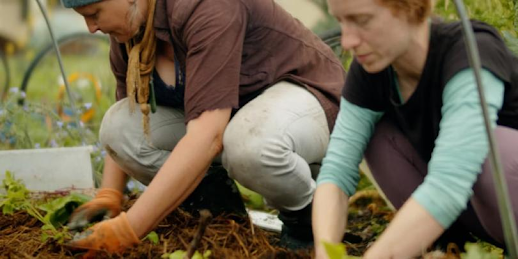The SAGE perspectives blog have also published this ("Editor's pick"), about our Human Behavioural Crisis paper.
“If psycho-behavioural change is given precedence over purely physical interventions, many anthropogenic pressures on Earth may be alleviated systemically.”
Ecological Overshoot
In a year beset by record high air and ocean
temperatures, wildfires and floods, and manifest across the globe, the reality
of climate change is undeniable. However, dangerous climate change is but one
of many interconnected symptoms of human ecological overshoot, along with relentless
degradation of the natural environment, loss of biodiversity, and a host of
social, economic and political trends.
Defining overshoot as, “the human consumption of
natural resources at rates faster than they can be replenished, and entropic
waste production in excess of the Earth's assimilative and processing capacity”,
begs the question of what is it that drives humans to act in such a
blatantly calamitous way?
This topic is explored more deeply in our recent
paper, “World Scientists’ Warning: The Behavioural Crisis Driving Ecological
Overshoot,” which concludes that the root cause of overshoot is
maladaptive human behaviour, framed as “the Human Behavioural Crisis” (HBC). We
argue that this may provide a critical intervention point for change, in contrast
to most current strategies, which are largely resource intensive, slow-moving
and focused on addressing the symptoms of ecological overshoot (such as climate
change) rather than the root causes (maladaptive behaviours, including those
that lead to excessive consumption and an eight-billion human
population).
We conclude that, even in the most optimistic
scenarios, symptom-level (“downstream”) interventions are unlikely to avoid
catastrophe or achieve more than ephemeral progress. Rather, interventions are
needed at the precursory “upstream” stage to ameliorate and reverse overshoot.
Together with our colleagues, we consider how the
behavioural crisis plays out through mindsets which, at least in the western
world, drive our excessive human numbers and appetites. The global
economy, enabled by clever marketing and pronatalist narratives, manipulates
previously adaptive behaviours which are now, collectively, bringing humanity
and millions of other species to the brink of an abyss.
We propose a systemic interdisciplinary emergency
response to this crisis of human greed, acquisition of resources, wastefulness
and an exploitative economy by, inter alia, reconfiguring societal attitudes
relating to consumption, reproduction and waste production.
Indeed, could those same behavioural science
mechanisms that drive our current journey to destruction be adapted to begin
putting things into reverse, aiming to attain a more eco-harmonious state of
“one planet living”?
Decarbonisation of the global energy system is
often presented as the problem humankind must solve. But the
installation of sufficient renewables to substitute for the 82% of our primary
energy currently provided by fossil fuels (to achieve “net zero” by 2050 or
even 2030) would require huge quantities of both raw materials and fossil
fuels. Even if this could be pulled off, it would improve just one symptom
of ecological overshoot, climate change, likely worsening others significantly
in the process.
Since it is humankind's access to cheap, abundant energy
that has enabled us to exceed or threaten many planetary boundaries, simply
substituting one form of energy for another without addressing our consumption
and waste of it doesn’t solve our overall predicament. As environmental
journalist Hart Hagan observes wryly:
“A species causing the extinction of 150 species
per day doesn’t need more energy to do more of what it does.”
Specific behavioural
interventions
By reframing our multiple existential crises, we
may advance from merely treating symptoms to healing the core cultural malady.
If behavioural change is prioritised over purely physical interventions, many
anthropogenic pressures on Earth may be alleviated systemically and
simultaneously. Thus, the current 100 billion tonnes per annum of natural resources
required to maintain ‘the human enterprise’ could be substantially
reduced. And a focus on lighter lifestyles in the Global North,
especially, would reduce our demand for massive amounts of “new” materials
needed to try and substitute fossil fuels with renewable energy.
Paradoxically, the marketing, media and
entertainment industries, all complicit in exacerbating the behavioural crisis,
may just be our best chance at avoiding ecological catastrophe.
The stories we tell shape appetites and norms. Typically,
when we try to address maladaptive behaviours, we usually focus on raising
awareness and education, under the arguable assumption that this leads to the
desired behaviours. But while awareness and education certainly have important
roles to play in combating ecological overshoot, they are relatively
ineffective at driving behavioural change. Can the same mechanisms that
fuelled our immense consumption bring it back within planetary limits?
Directing and policing widespread
behaviour manipulation
Like the manipulation of human impulses to buy more
and more goods that we don’t need, behaviour has been intentionally manipulated
for other nefarious purposes. Eco-centric behaviour is at the heart of any
sustainable future humanity might wish to achieve. We are now at a crossroads,
with three possible paths ahead:
- We
can continue letting private corporations, nations and others manipulate
our behaviours for either financial or political profit,
- We
can ignore the problem and leave our future and planet to chance, or
- We
can use the opportunity to consciously steer our collective behaviours to
conform to the natural ecological laws that bind all life on Earth. This
is, in the case of human fertility, already happening in most countries.
This raises deep ethical questions: for example,
who should wield such power to reverse the exploitation of human impulse for
private profit or political gain? At present, the mechanisms for behaviour
change are in the hands of anyone with the necessary influence or financial
means to exploit them. However, large-scale social change should happen
organically, and messaging to reverse the damage of the past century should be
firmly bound by, and anchored within a framework built upon the Earth’s natural
planetary boundaries, the science of limits to growth, and a social and/or
spiritual need to reconnect to Nature as a life-support system, rather than an
arena for commodification, exploitation, competition and dominance.
We urgently call for increased interdisciplinary
work to be carried out in directing, understanding and tracking widespread
behaviour manipulation. A practical start on this is being made at the Merz
Institute and its Overshoot
Behaviour Lab.
Article Details
World
scientists’ warning: The behavioural crisis driving ecological overshoot
Joseph J Merz, Phoebe Barnard, William E Rees, Dane Smith, Mat Maroni,
Christopher J Rhodes, Julia H Dederer, Nandita Bajaj, Michael K Joy, Thomas
Wiedmann, Rory Sutherland
First Published September 20, 2023 Review Article
DOI: 10.1177/00368504231201372
Science Progress
About the Authors
Christopher J Rhodes (DPhil, DSc) became a full
professor in physical chemistry in his early 30s, and has published over 250
peer reviewed academic papers and an extensive online collection of essays and
journalism. He is currently Director of the consultancy, Fresh-lands
Environmental Actions, and a Board member of Scientists Warning Europe. He has
advised on low-carbon energy for the European Commission. Chris holds
Fellowships of the Royal Society of Chemistry, the Linnean Society of London,
and the Royal Society of Arts. He is Chair of Transition Town Reading (U.K.).
He has also published a novel, a collection of poetry and a series of
children's picture books.
Phoebe Barnard (PhD) is professor of environmental and societal
futures and global change science at University of Washington, climate
vulnerability research associate at University of Cape Town, founding CEO of
the global Stable Planet Alliance, and cofounder of the Global Restoration
Collaborative, a young process to drive and reframe our economy and
civilization to regenerative alternatives. Working for decades in post-independence
Africa at countries’ transition to democratic rule, she brings the “What is, to
what if?” frames that they considered at their historical crossroads to the
challenges now faced by humanity as a whole.
Joseph J Merz is the Co-founder of a number of organisations. He
is the Founder and Chairman of the Merz Institute - a research institute
largely focused on addressing ecological overshoot at a behavioural level.
Joseph serves on the Executive Committee of the Stable Planet Alliance, and is
also a Senior Fellow of the Global Evergreening Alliance.








